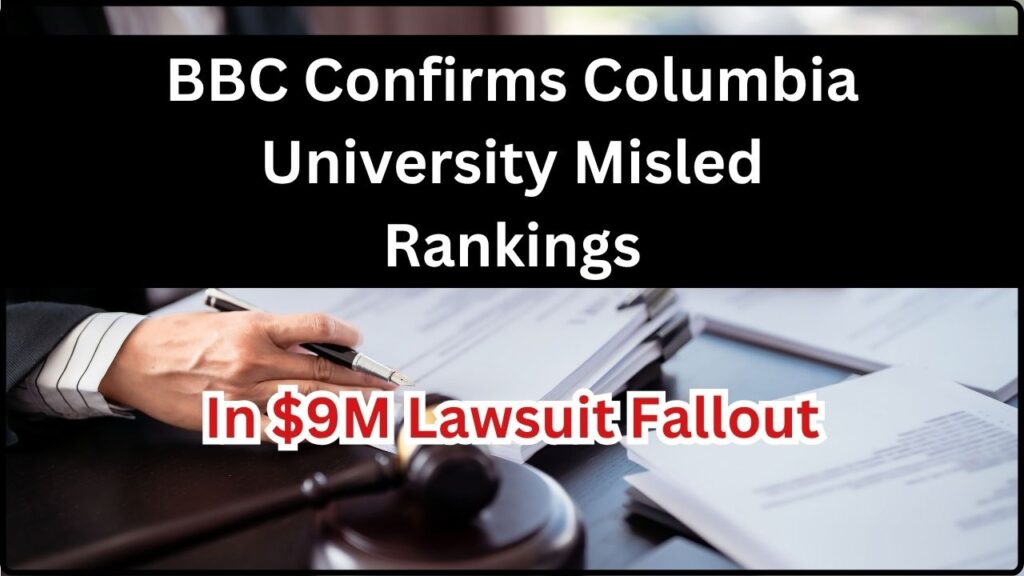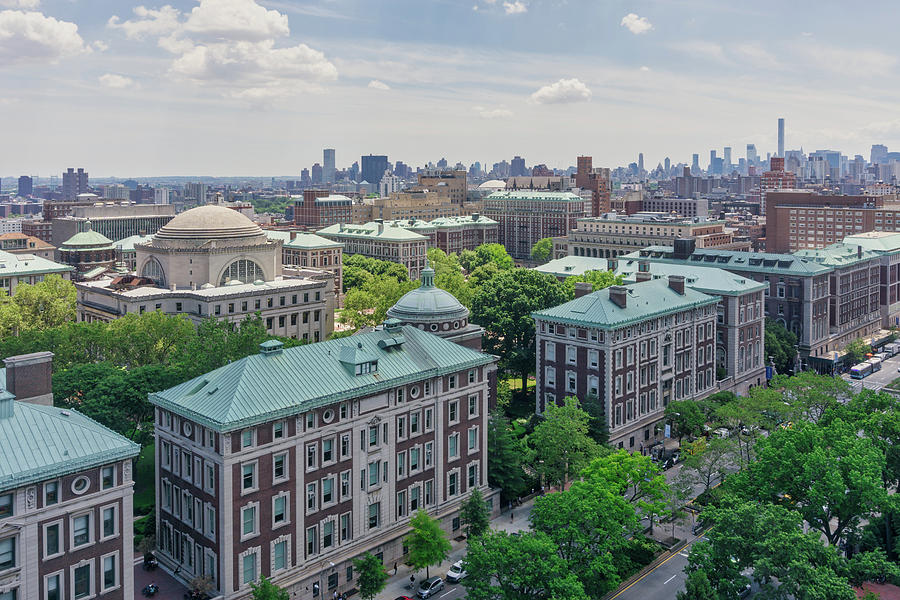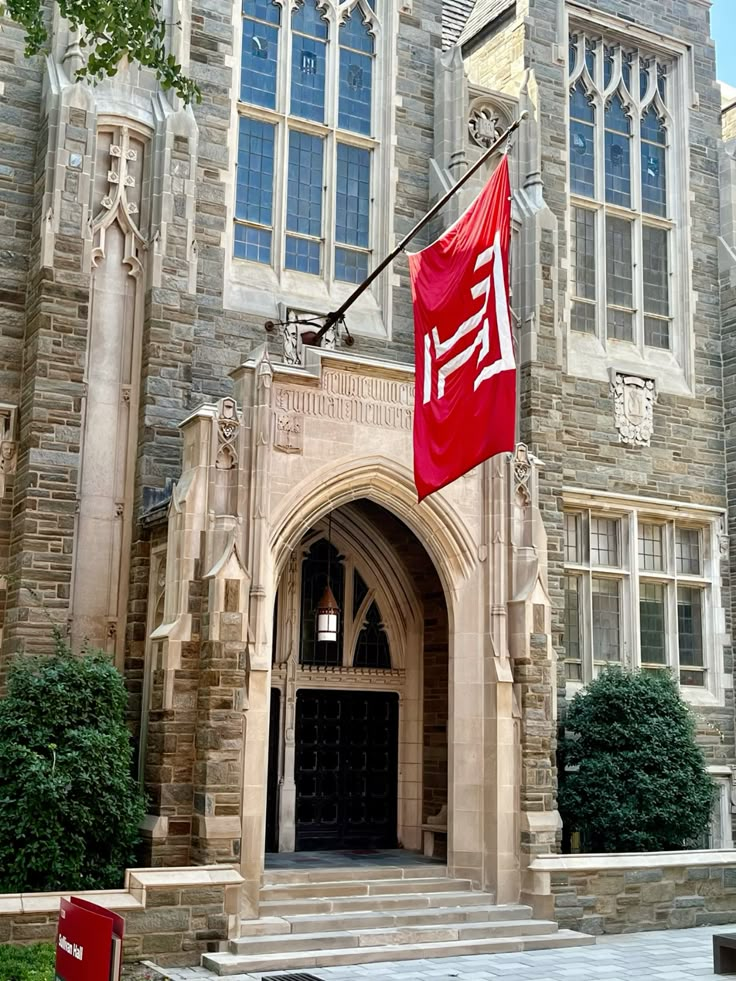Columbia University Misled Rankings in $9M Lawsuit Fallout: In a controversy that’s rattled the higher education world, Columbia University misled the U.S. News & World Report college rankings, which helped boost its status among top-tier institutions. Now, after facing a student-led class-action lawsuit, Columbia has agreed to pay $9 million in settlement — marking a major moment in the ongoing scrutiny of the college ranking system. This article dives deep into what happened, why it matters, and how students, parents, and education professionals should respond. Written from the perspective of a higher education expert and designed to be understandable by all readers — from students to seasoned faculty — this is your complete guide.
Columbia University Misled Rankings in $9M Lawsuit Fallout
The Columbia University ranking scandal is more than just a black eye for one Ivy League institution. It’s a mirror held up to the entire U.S. higher education system — revealing how much sway rankings have, and how little oversight there is on the data used to produce them. For students, families, and education professionals, this is a call to action: prioritize transparency, demand honesty, and look beyond the list. The best college for you may not be at the top of the rankings, but it will be the one that fits your goals, values, and future.

| Aspect | Details |
|---|---|
| University | Columbia University, New York City |
| Scandal | Falsified data submitted to U.S. News rankings |
| Settlement Amount | $9 million |
| Eligible Students | Estimated 22,000 undergrads (2016–2022) |
| Data Manipulated | Class sizes, faculty credentials, spending per student |
| Ranking Impact | Dropped from #2 to #18 in U.S. News |
| Whistleblower | Prof. Michael Thaddeus |
| Columbia’s Response | Denied wrongdoing, admitted data flaws |
| Action Taken | Pulled out of U.S. News rankings in 2023 |
| Additional Info | Columbia University Official Site |
What Happened at Columbia?
Columbia, one of the eight Ivy League schools, was ranked the #2 national university in 2022 by U.S. News & World Report. That ranking came with prestige, influence, and increased applications. But in March 2022, a math professor at Columbia, Dr. Michael Thaddeus, released a detailed analysis showing that the school’s submitted data didn’t match publicly available information.
Among the discrepancies he found:
- Columbia claimed 83% of undergraduate classes had fewer than 20 students, but actual reports suggested it was closer to 63%.
- The university asserted that 100% of full-time faculty held the highest degree in their field, yet multiple instructors did not.
- Spending per student was reported higher than the numbers in official IRS documents.
The revelations were significant: they cast doubt not just on Columbia’s reputation, but on the very trustworthiness of the rankings system used by millions of families in the U.S.

Timeline of Events
| Year | Event |
|---|---|
| 2022 | Prof. Michael Thaddeus releases investigative report |
| Mid-2022 | Columbia drops from #2 to #18 in U.S. News rankings |
| July 2022 | Students file a class-action lawsuit |
| 2023 | Columbia formally withdraws from U.S. News undergraduate rankings |
| July 2025 | Columbia agrees to pay $9 million to settle the lawsuit |
The $9 Million Lawsuit: Legal and Ethical Details
The class-action lawsuit, filed by former Columbia students, accused the university of false advertising, breach of contract, and deceptive business practices. The plaintiffs argued that Columbia’s inflated rankings influenced their decision to enroll, and that they paid high tuition based on misleading information.
While Columbia denied any intentional misconduct, the university acknowledged “deficiencies” in its data submission. As part of the settlement, the university agreed to pay $9 million without admitting liability — a common resolution in such lawsuits.
Approximately 22,000 undergraduate students who attended between Fall 2016 and Spring 2022 are eligible for compensation, though the final payout per student will depend on how many valid claims are submitted.
The university has since hired an independent advisory firm to verify all future public data disclosures and has pledged to implement new transparency protocols.
What Experts Are Saying About Columbia University Misled Rankings in $9M Lawsuit Fallout?
Educational experts have voiced strong opinions on the implications of this case. Many argue that it reflects a deeper, long-standing problem in the U.S. college admissions ecosystem.
“This isn’t just about Columbia,” said Dr. Karen Vasquez, a professor of education policy at the University of Michigan. “This is about an entire system where reputation is built on metrics that are easy to manipulate and hard to verify.”
Michael Thaddeus, the whistleblower and Columbia professor, expressed concern over the university’s priorities. “Columbia has a lot to offer. But when you start tweaking numbers for image, you betray your values and your students,” he said.
Why the Rankings Matter?
The U.S. News & World Report rankings have a massive influence. Parents and students use them to make life-changing decisions, often selecting colleges based on where they fall on the list. Top-ranked universities attract:
- More applications
- Larger donations from alumni and institutions
- Better access to faculty and research grants
- Higher tuition justification
But the ranking system is proprietary and opaque. The formula isn’t fully disclosed, and many metrics—like “reputation” and “student selectivity”—are subjective or easily skewed by manipulated data.
This scandal revealed just how fragile the credibility of those rankings can be.
A Look at Other College Data Scandals
This isn’t the first time a U.S. university has faced scrutiny over false data:

| University | Scandal | Year | Outcome |
|---|---|---|---|
| Temple University | Inflated MBA data to boost U.S. News ranking | 2018 | Dean fired; fines paid |
| Claremont McKenna College | Misreported SAT scores | 2012 | Admissions officer resigned |
| University of Southern California | Involved in nationwide bribery admissions scandal | 2019 | Several officials sentenced |
| Columbia University | Misrepresented data in national rankings | 2022–2025 | $9M settlement; ranking drop |
These examples show a worrying pattern: as competition increases, so does the temptation to game the system.
Practical Guide: Choosing a College in the Post-Rankings Era
If you’re a student, parent, or counselor, here’s how to avoid being misled in your college search:
1. Use Independent Sources
Use official databases like the College Scorecard, which is maintained by the U.S. Department of Education. It provides data on:
- Graduation rates
- Average student debt
- Earnings after graduation
2. Look Beyond the Rank
Ask questions such as:
- What kind of academic support is offered?
- What’s the actual student-faculty interaction like?
- Are professors teaching undergraduates or only graduate students?
3. Visit Campus (or Take Virtual Tours)
Nothing beats direct experience. Talk to current students, attend a class if possible, and assess whether the school fits your academic and personal goals.
4. Check Accreditation and Transparency
Look for schools that publish clear, accessible data about student outcomes, faculty credentials, and graduation rates.
5. Don’t Assume Ivy Means Best
Many non-Ivy schools offer better teaching, stronger job placement, and lower costs. Prestige isn’t always the best investment.

Impact on the Broader Education Industry
Columbia’s case is part of a broader reckoning for U.S. higher education. Several leading universities — including Harvard, Yale, and Stanford — have recently withdrawn from U.S. News graduate or law school rankings, citing methodological flaws and ethical concerns.
Colleges are now re-evaluating how much power they give to third-party ranking systems, and some are even pushing for federal regulation or industry-wide reform in how data is submitted and validated.
Some institutions are adopting a new ethos of “data transparency and integrity over prestige,” though it’s still too early to tell if the trend will stick.







